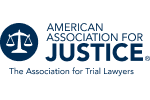Defense Lawyers
Vulnerable Adult Exploitation
Vulnerable persons are those adults and minors who are unable to perform daily activities or protect themselves due to physical or developmental disability, dysfunction, brain damage, or infirmities including aging. Advances in medicine and health care have resulted in a greatly increased elderly population and a corresponding increase in elder abuse. Mississippi’s first vulnerable adult protection act was enacted in 1986. The scope of the law has broadened considerably to extend protection to all vulnerable persons, whether minor or adult.
In Mississippi, “vulnerable persons” are minors and adults with mental, emotional, physical or developmental disabilities, including brain damage or infirmities of aging. Vulnerable persons lack the ability to provide for their own care or protect themselves from abuse, neglect, financial exploitation or improper sexual contact. Mississippi’s vulnerable persons law extends to residents or patients of care facilities such as a nursing home, hospital or regional center for intellectual or developmental disabilities. Mississippi’s vulnerable persons law also protects vulnerable adults and minors in private residences. Vulnerable adults may lack the ability to provide or obtain necessary food, shelter or services to maintain their well being. Vulnerable adults may lack the ability to give informed consent. Vulnerable adults may have health problems that place them in a dependant position.
Mental, Emotional, Psychological Abuse
Vulnerable adults can be dependant on others for food, shelter, hygiene, medical and other essential needs. This dependancy creates a power dynamic over the vulnerable person, which can be especially acute when the abuser is also a caretaker. Persons with a higher level of dependency on others also tend to develop higher levels of trust. Threats of harm, abandonment, isolation, coercion, or verbal abuse are all examples of mental, emotional or psychological abuse. Dependant vulnerable adults are subject to physical, mental, sexual and financial manipulation. Caregivers, relatives and friends have unfettered access to vulnerable adults. Pain pills in arms reach of the patient can disappear. Residents of a care facility including hospice are particularly vulnerable to theft of medication specifically prescribed for pain relief.
A vulnerable adult who is confined or shut in is subject to undue influence by others. Lonely, isolated, emotionally dependant vulnerable adults can be subject to the undue influence of caregivers, relatives, and friends. Undue influence involves taking advantage of power over a vulnerable adult.
Almost every other category of abuse will involve elements of emotional abuse plus the betrayal of trust that vulnerable persons place in their friends, family, and caregivers.
Physical Abuse and Neglect
When a vulnerable adult or vulnerable minor is a resident in a care facility such as a hospital, regional center for intellectual or developmental disabilities, or care home, caregivers are trained to spot indicators of physical abuse including:
- cuts, lacerations, bruising, welts, skin discoloration, black eyes;
- burn marks, especially burns with a well defined edge;
- physical signs of punishment or restraint;
- the vulnerable adult telling others they have been hit, slapped or mistreated;
- unexplained physical injuries; or
- failure to seek medical help for an injury.
Other indicators of abuse can include:
- aggressive behavior by the caregiver toward the vulnerable person;
- caregiver’s inappropriate display of affection;
- social isolation of the vulnerable person by caregiver or suspected abuser;
- conflicting accounts of physical injury by family or caregiver;
- inappropriate defensiveness by caregiver;
- unusual confinement or lack of assistance by caregiver; or
- improper nutrition, hygiene, or medical care.
Exploitation can occur when a vulnerable person is confined to home or a care facility. Vulnerable adults who are shut in become isolated and emotionally dependent on other persons. Lonely, isolated, emotionally dependant vulnerable adults may be subject to the undue influence of caregivers, relatives, and friends. Protection of vulnerable adults is a matter of Mississippi and federal concern since the state receives federal funds for support of vulnerable adults. Complaints of abuse of vulnerable adults and vulnerable minors are frequently investigated by local law enforcement, the Mississippi Attorney General’s Office, and federal investigators. If a caregiver or relative uses deceit, power, persuasion or undue influence over a vulnerable adult for personal benefit, a report and investigation can follow. Vulnerable persons investigations are extensive including assembly of documents, photographs , medical records, financial records of the vulnerable person and the accused abuser. For example, what appears to be a misdemeanor theft can involve a series of different financial crimes and be charged as a felony. Examples include theft, credit card fraud, or forgery related to checks, deeds, or wills.
Financial Exploitation
In Mississippi, financial exploitation of a vulnerable adult means the illegal or improper use of the vulnerable adult’s property or resources for another’s profit, advantage, or unjust enrichment. Being isolated and lonely can make a shut in or confined individual gullible or overly trusting. Older people with assets are the most vulnerable. Vulnerable persons being financially exploited may feel a psychological or emotional attachment to the person, especially if done by a long term caregiver or relative. Financial exploitation can be charged regardless of whether or not the vulnerable person consented. Financial exploitation may include actions taken pursuant to a guardianship, conservatorship, or power of attorney.
In Mississippi financially exploiting a vulnerable adult of more than $250 is a felony. The Attorney General investigator or local law enforcement will promptly investigate all charges of abuse before evidence can be destroyed or the abuser influences the vulnerable adult’s recollection of what happened. Vulnerable adults are also subject to financial exploitation by investment and insurance salesman, telephone marketers and contractors.
Some indicators of financial exploitation or abuse include:
- signatures on checks when theindividual is confined to bed or cannot write;
- adding names of caregivers or other unauthorized users to financial accounts;
- Sudden appearance of previously uninvolved relatives claiming involvement with the vulnerable person’s affairs;
- unexplained sudden transfer of money or assets;
- unexplained disappearance of money or valuables;
- isolation of the vulnerable person resulting in exclusive control of money or assets by the caregiver;
- using unauthorized friendship to persuade a vulnerable adult to make gifts, credit card purchases, or sign over property; or
- where the vulnerable adult gave a power of attorney but it was not used for the benefit of the vulnerable person.
Its not Always Clear cut
Family members or caregivers can be wrongfully accused. False reports of neglect can result from family disputes over control over the vulnerable or elderly person’s money and property. Accusations of neglect or abuse need to be carefully investigated to see who is trying to get control of bank accounts and property. Jealous relatives may accuse a family member holding a power of attorney of abusing that power. False accusations can arise where another person is seeking to gain an advantage, as in child custody or child support cases, or revenge. Mandatory reporting requirements will generate detailed investigations.
Sometimes allegations of abuse arise from a misunderstanding no matter how minor the charge. False charges of abuse of vulnerable persons can be costly and damaging to your reputation. It is important to remember that abuse does not mean treatment, care or conduct in furtherance of health and safety of a patient or resident of a care facility. Moreover, abuse does not include normal care giving actions or displays of affection. The best Mississippi defense lawyers will raise all issues helpful to the defense including:
- Did the allegedly vulnerable person have the mental capacity to consent to sexual relations?
- Care providers should be trained not to strike vulnerable residents. However, if the care worker was startled, an instant reaction may be involuntary.
- Where vulnerable persons show bruises or welts, it may be unclear what or who caused them. Was the vulnerable person alone with the caregiver or anyone else when this happened?
- Did the vulnerable person have the mental capacity to give money or property or allow a credit card to be used by someone else?
If you have been charged with abuse of a vulnerable adult or vulnerable minor, you should explore every defense. The need for a lawyer is not an admission of guilt. Contact Albert R. Jordan IV of Healy & Jordan, PLLC, 1323 28th Ave #A, Gulfport, MS, 39501, telephone 228.863.0123.







